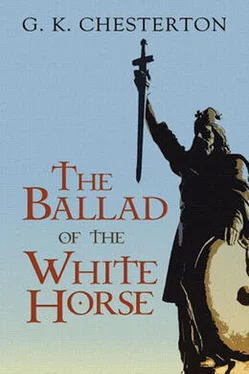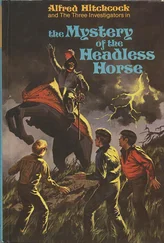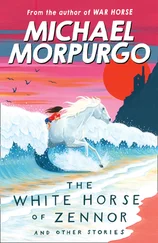And Hacon of the Harvest–Song,
And Dirck from the Elbe he slew,
And Cnut that melted Durham bell
And Fulk and fiery Oscar fell,
And Goderic and Sigael,
And Uriel of the Yew.
And highest sang the slaughter,
And fastest fell the slain,
When from the wood–road's blackening throat
A crowning and crashing wonder smote
The rear–guard of the Dane.
For the dregs of Colan's company—
Lost down the other road—
Had gathered and grown and heard the din,
And with wild yells came pouring in,
Naked as their old British kin,
And bright with blood for woad.
And bare and bloody and aloft
They bore before their band
The body of the mighty lord,
Colan of Caerleon and its horde,
That bore King Alfred's battle–sword
Broken in his left hand.
And a strange music went with him,
Loud and yet strangely far;
The wild pipes of the western land,
Too keen for the ear to understand,
Sang high and deathly on each hand
When the dead man went to war.
Blocked between ghost and buccaneer,
Brave men have dropped and died;
And the wild sea–lords well might quail
As the ghastly war–pipes of the Gael
Called to the horns of White Horse Vale,
And all the horns replied.
And Hildred the poor hedger
Cut down four captains dead,
And Halmar laid three others low,
And the great earls wavered to and fro
For the living and the dead.
And Gorlias grasped the great flag,
The Raven of Odin, torn;
And the eyes of Guthrum altered,
For the first time since morn.
As a turn of the wheel of tempest
Tilts up the whole sky tall,
And cliffs of wan cloud luminous
Lean out like great walls over us,
As if the heavens might fall.
As such a tall and tilted sky
Sends certain snow or light,
So did the eyes of Guthrum change,
And the turn was more certain and more strange
Than a thousand men in flight.
For not till the floor of the skies is split,
And hell–fire shines through the sea,
Or the stars look up through the rent earth's knees,
Cometh such rending of certainties,
As when one wise man truly sees
What is more wise than he.
He set his horse in the battle–breech
Even Guthrum of the Dane,
And as ever had fallen fell his brand,
A falling tower o'er many a land,
But Gurth the fowler laid one hand
Upon this bridle rein.
King Guthrum was a great lord,
And higher than his gods—
He put the popes to laughter,
He chid the saints with rods,
He took this hollow world of ours
For a cup to hold his wine;
In the parting of the woodways
There came to him a sign.
In Wessex in the forest,
In the breaking of the spears,
We set a sign on Guthrum
To blaze a thousand years.
Where the high saddles jostle
And the horse–tails toss,
There rose to the birds flying
A roar of dead and dying;
In deafness and strong crying
We signed him with the cross.
Far out to the winding river
The blood ran down for days,
When we put the cross on Guthrum
In the parting of the ways.
Book VIII:
The Scouring of the Horse
In the years of the peace of Wessex,
When the good King sat at home;
Years following on that bloody boon
When she that stands above the moon
Stood above death at Ethandune
And saw his kingdom come—
When the pagan people of the sea
Fled to their palisades,
Nailed there with javelins to cling
And wonder smote the pirate king,
And brought him to his christening
And the end of all his raids.
(For not till the night's blue slate is wiped
Of its last star utterly,
And fierce new signs writ there to read,
Shall eyes with such amazement heed,
As when a great man knows indeed
A greater thing than he.)
And there came to his chrism–loosing
Lords of all lands afar,
And a line was drawn north–westerly
That set King Egbert's empire free,
Giving all lands by the northern sea
To the sons of the northern star.
In the days of the rest of Alfred,
When all these things were done,
And Wessex lay in a patch of peace,
Like a dog in a patch of sun—
The King sat in his orchard,
Among apples green and red,
With the little book in his bosom
And the sunshine on his head.
And he gathered the songs of simple men
That swing with helm and hod,
And the alms he gave as a Christian
Like a river alive with fishes ran;
And he made gifts to a beggar man
As to a wandering god.
And he gat good laws of the ancient kings,
Like treasure out of the tombs;
And many a thief in thorny nook,
Or noble in sea–stained turret shook,
For the opening of his iron book,
And the gathering of the dooms.
Then men would come from the ends of the earth,
Whom the King sat welcoming,
And men would go to the ends of the earth
Because of the word of the King.
For folk came in to Alfred's face
Whose javelins had been hurled
On monsters that make boil the sea,
Crakens and coils of mystery.
Or thrust in ancient snows that be
The white hair of the world.
And some had knocked at the northern gates
Of the ultimate icy floor,
Where the fish freeze and the foam turns black,
And the wide world narrows to a track,
And the other sea at the world's back
Cries through a closed door.
And men went forth from Alfred's face,
Even great gift–bearing lords,
Not to Rome only, but more bold,
Out to the high hot courts of old,
Of negroes clad in cloth of gold,
Silence, and crooked swords,
Scrawled screens and secret gardens
And insect–laden skies—
Where fiery plains stretch on and on
To the purple country of Prester John
And the walls of Paradise.
And he knew the might of the Terre Majeure,
Where kings began to reign;
Where in a night–rout, without name,
Of gloomy Goths and Gauls there came
White, above candles all aflame,
Like a vision, Charlemagne.
And men, seeing such embassies,
Spake with the King and said:
"The steel that sang so sweet a tune
On Ashdown and on Ethandune,
Why hangs it scabbarded so soon,
All heavily like lead?
"Why dwell the Danes in North England,
And up to the river ride?
Three more such marches like thine own
Would end them; and the Pict should own
Our sway; and our feet climb the throne
In the mountains of Strathclyde."
And Alfred in the orchard,
Among apples green and red,
With the little book in his bosom,
Looked at green leaves and said:
"When all philosophies shall fail,
This word alone shall fit;
That a sage feels too small for life,
And a fool too large for it.
"Asia and all imperial plains
Are too little for a fool;
But for one man whose eyes can see
The little island of Athelney
Is too large a land to rule.
Читать дальше












